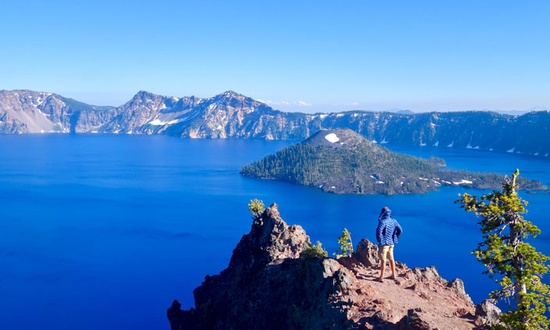Question from a reader:
As Christians we carry one passport that says Earth and another that says Heaven. How should we live now in a world that will die, yet will be raised to exist again forever?
Answer from Randy Alcorn:
Some Christians believe that with prayer and hard work—including political mobilization—we can reclaim our country’s Christian distinctives, make abortion illegal again, and limit legalized marriage to a man and woman.
Other Christians question not only whether this is possible, but also whether it’s desirable. Why devote so much time, money and energy to improving a world that’s going to hell in a handbasket? When you know the ship’s sinking you don’t keep trying to fix it; you herd people into the lifeboats! So, they argue, let’s just preach the gospel and pray, and stay away from social reform.
The first viewpoint says we should do everything possible, including politically, to Christianize this nation. The other says that Jesus calls us to be apolitical, and bring change by being committed disciples in our neighborhoods, communities, and workplaces. We don’t need, they say, to make our beliefs a mandate that we foist on a world that already thinks of Christians as intolerant.
Others add—and I hope we can all agree on this one—that we should help the poor and needy, since Christ clearly commanded that.
Twenty-four years ago, as a young pastor, my wife and I opened our home to a pregnant teenager, who we had the joy of seeing come to Christ. Soon afterward I served on the board of the first pregnancy center in our area. Fifteen years ago I participated in peaceful, nonviolent activities at abortion clinics. I was sued for $8.2 million and had to resign as a pastor to keep my wages from being garnished by an abortion clinic.
Additionally, I helped try to stop the attempts to legalize physician-assisted suicide in Oregon. (We lost that battle.) I was sued by the American Civil Liberties Union (ACLU) because I refused to obey a court order demanding that we not gather to pray, on the National Day of Prayer, at our City Hall, which we had received official permission to do.
While it might appear, because of my past activities, that I fall clearly into one camp on the issues I’ve raised, in fact, I do not. I still wrestle with what we should do, and not do, as Christians in this culture.
Rather than come up with a checklist, examining the pros and cons on both sides, I think it’s better to consider what Scripture tells us not only about ourselves, but also the Earth we inhabit. If our thinking is right, it will give us principles to draw from as we determine what we should do—and not do—as Christ’s followers concerned about the future of our culture.
Not Our Home
As Christians we have a dual citizenship. Just as He promises to make men and women new, God also promises to renew the Earth itself. Scripture calls this the New Earth, an Earth where “there will be no more death or mourning or crying or pain” and “no longer will there be any curse” (Rev. 21:1, 4, 22:3, NIV).
The saying goes, “This world is not our home.” We should qualify that to say “This world—as it now is, under the curse—is not our home.” But we should also add, “This world—as it will be, delivered from the curse—will be our home.”
God’s perfect plan is one day “to bring all things in heaven and on earth together under one head, even Christ” (Eph. 1:10). The wall of separation between God and mankind will be brought down: “Now [on the New Earth] the dwelling of God is with men, and he will live with them. They will be his people, and God himself will be with them and be their God” (Rev. 21:3).
God will come down to live with us on the New Earth, which will be Heaven, His central dwelling place. Then we’ll have a single passport that says “New Earth.” One day as heirs of Heaven’s King, we will enter into full possession and stewardship of our native land: “His servants will serve him.... And they will reign for ever and ever” (Rev. 22:3,5).
Genesis 1-2 tells us that God made us to be rulers of the Earth, and His plan has never changed. Revelation 21-22 reclaims God’s original intent for righteous humanity to rule the Earth forever, to God’s glory. (Shouldn’t that knowledge motivate us to take active stewardship of what God has entrusted to us on this present Earth?)
In my book Heaven, I develop biblically why I believe on the New Earth there will be natural wonders, animals, trees, rivers, cities, houses, and architecture. We will laugh and eat and drink and tell stories, make crafts, build, garden, care for animals, play, enjoy sports and physically demanding activities, tend and manage and rule the Earth.
We will collaborate, research, invent, read books and write them, create and perform dramas, compose music and perform it, all to God’s glory. Why? Because we will still be physical beings created in God’s image, which means we are creative and intelligent. And we will be restored to a New Earth without sin and death, to fulfill God’s original plan of stewarding the material universe to His eternal glory.
Peter tells us: “In keeping with his promise we are looking forward to a new heaven and a new earth, the home of righteousness” (2 Pet. 3:13). Yet, strangely, most Christians are not looking forward to a New Earth where we, as resurrected people, will live and rule and serve with our Lord Jesus. At best, they anticipate—and sometimes, frankly, dread—a disembodied or angelic state where they will be less than human.
Paul reminded the Philippians, who were proud of their Roman citizenship, “Our citizenship is in heaven” (Phil. 3:20). We are ambassadors for Christ, representing our King and the policies of His kingdom in this world where—due to sin and curse—such policies are countercultural. As His ambassadors we must be careful not to be absorbed into this culture, lest we cease to represent and further His kingdom.
God’s people are called to live on the current Earth, in our current country, while looking forward to a New Earth and “longing for a better country” (Heb. 11:16).
So who is right? Those who believe this world is our home, and we should do all we can to care for the Earth, to steward it and relieve what suffering we can? Or, those who believe this world is not our home, and we need to focus on bringing the gospel to people so they can become citizens of a realm that will last forever? Biblically, both are right to a degree...but both can easily slide into imbalance if they fail to consider the larger biblical picture.
All Things New
Mankind was designed to live on the Earth to God’s glory. That’s exactly what Christ’s incarnation, death and resurrection secured—a renewed humanity upon a renewed Earth.
God has never given up on His original creation. Yet, somehow we’ve managed to overlook an entire biblical vocabulary that makes this point clear. Reconcile. Redeem. Restore. Recover. Return. Renew. Regenerate. Resurrect. Each of these biblical words begins with the “re” prefix, suggesting a return to an original condition that was ruined or lost.
But doesn’t Scripture say the Earth will be destroyed? Yes. But the bodies of people who died hundreds of years ago are likewise destroyed. Yet, those same bodies (via their atoms or molecules or DNA) will be raised. Likewise, the same Earth destined for destruction is also destined for restoration.
Romans 8:19-23 inseparably links the destinies of mankind and Earth. As such, the Earth will be raised to new life in the same way our bodies will be raised to new life.
The Earth’s death will be no more final than our own. The destruction of the old Earth in God’s purifying judgment will immediately be followed by its resurrection to new life. Earth’s fiery “end” will open straight into a glorious new beginning. As C. S. Lewis put it at the end of The Last Battle: “Now at last they were beginning Chapter One of the Great Story, which no one on earth has read: which goes on forever: in which every chapter is better than the one before.”
No Earthly Good?
Some warn of those who are “so heavenly minded they’re of no earthly good.” Relax—we have nothing to worry about! On the contrary, many of us are so earthly minded we are of no heavenly or earthly good.
C. S. Lewis observed: “If you read history, you will find that the Christians who did most for the present world were just those who thought most of the next. The Apostles themselves, who set on foot the conversion of the Roman Empire, the great men who built up the Middle Ages, the English Evangelicals who abolished the Slave Trade, all left their mark on Earth, precisely because their minds were occupied with Heaven.”
In fact, Scripture commands us, “Set your hearts on things above, where Christ is....Set your minds on things above, not on earthly things” (Col. 3:1-2). That’s a direct command to be heavenly minded, isn’t it? So, how should we live now in a world that will die, yet will be raised to exist again forever? Some say that trying to improve the world is just rearranging the deck furniture on the Titanic. If the Earth will be finally destroyed, why do anything to make it better?
But if we realize we are stewards of God’s creation, and our job is to be managers of the Earth and lovers of people, then we will do what we can to help people and improve culture and be righteous stewards of God’s Earth. We will not have a lifeboat theology, but an ark theology that recognizes much that is in this world will continue forever, resurrected by Christ in the form of a New Earth. Hence, we should not act as if our stewardship of this Earth or our bodies or our gifts or businesses don’t matter. They do.
Why? Because in eternity we will have bodies, these same bodies resurrected, and relationships with the same people who have lived on this Earth. We will live in a redeemed society in which we will exercise our gifts and creativity to rule a real Earth, this same Earth resurrected. The belief that only people’s souls will last forever, and therefore our only concern should be for souls, is a false doctrine.
If we realize the continuity between our present lives and the afterlife, we will recognize God cares about our character and our moral choices, and that how we live will make a difference after we die.
After saying “we are looking forward to a New Heaven and a New Earth, the home of righteousness,” Peter immediately adds, “So then, dear friends, since you are looking forward to this, make every effort to be found spotless, blameless and at peace with him” (2 Pet. 3:13-14).
Knowing we will live forever as resurrected people on a New Earth will make us realize that the choices we make today, including our choices of personal holiness—and how we act toward others—will make an indelible mark on eternity. God is watching. He is keeping track. Jesus said that in Heaven He’ll reward us for our acts of faithfulness to Him, right down to every cup of cold water we’ve given to the needy in His name (see Mark 9:41).
Whether it’s coaching a team, mentoring young people, mowing a widow’s lawn, standing up for unborn children, working for racial reconciliation, going on short-term missions trips, or giving a large portion of your income to missions or inner-city work—what are you doing to bring a vision of the coming New Earth to this current, hurting Earth?
Our answers will vary. There is no checklist. But we should not forget the compelling reality that we are citizens of two realms, which will one day be consolidated into one—a New Heaven and a New Earth, indivisible and under the eternal rule of Christ. On that Earth, we will look back with satisfaction and gratitude at the difference, by God’s grace, we were able to make on this Earth.
Browse more resources on the topic of Heaven, and see Randy’s related books, including Heaven.





